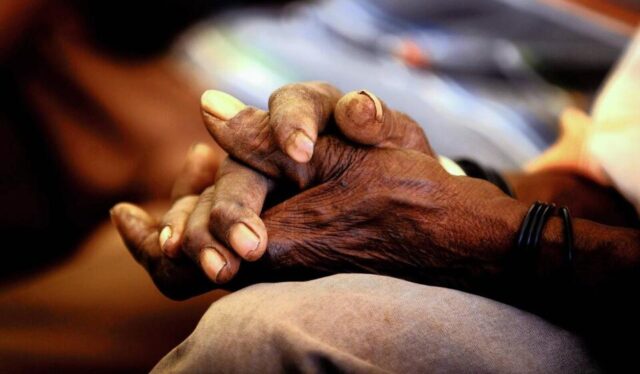One in 10 people aged 65 years and older reported having experienced some form of abuse, new UCT research has found.
ONE IN 10 people aged 65 years and older reported having experienced some form of abuse, new UCT research has found.
Financial and emotional abuse were the most common types of reported abuse, according to the study by UCT PhD graduate Roxanne Jacobs.
“We found that more than half of the acts of abuse that involved taking money, valuables or other things involved strangers,” said Jacobs, adding that functional impairment of older adults was a significant predictor of self-reported elder abuse.
Titled “Elder abuse in South Africa: measurement, prevalence and risk”, the research showed common perpetrators of elder abuse to be non-family, with which the older person had a personal relationship, and family members living in the same home, or not.
Jacobs, a research officer at the Alan J Flisher Centre for Public Mental Health, looked at the prevalence, predictors and risk estimates from a randomised household survey of 490 older adults and household informant dyads in Limpopo and Western Cape, nested within the STRiDE project which aimed to contribute to improving dementia care, treatment and support systems.
“There is very little research on elder abuse in South Africa, especially considering that our country has such high rates of violence and crime. There is virtually a complete absence of prevalence estimates, routine reporting or monitoring and surveillance available on issues relating to elder abuse. We assume it’s high, but we really don’t know and have critical gaps in evidence we need to fill to inform responses and priority setting,” she said.
Jacobs’ research found that more than half of carers – 51.8% – screened positive for risk of abusing, of which 14.3% were high-risk.
Carers of people living with dementia were four times more likely to be at risk of abusing compared to carers of people without dementia.
“Carers of people living with dementia had various strategies to cope that included pacifying or evading challenging care interactions, feeling forced to be rough with an older person to get things done, and being a recipient of aggression and violence from their care-recipient themselves (aggressive behaviours from an older person living with dementia was a trigger for reciprocal violence and aggression) – increasing carer burden, stress and risk of abusing,” Jacobs said.
She noted that high carer burden and neuropsychiatric symptoms of older adults were significant predictors of the carer being at risk of perpetrating abuse, suggesting that “we can minimise risk by supporting carers and people living with dementia in managing symptoms”.
“Not all perpetrators of abuse are equal in culpability. While there are perpetrators that intentionally set out to exploit and harm, family carers of people living with dementia are more likely to need guidance and support in their care of a family member,” she said.
Her supervisor, Associate Professor Margie Schneider, said the research has made a global contribution as one of the first studies that explored the relationship between dementia, functional impairment, and elder abuse at a community level, and to use a verification strategy in the screening of elder abuse to standardise understanding of abuse at local and global levels.








